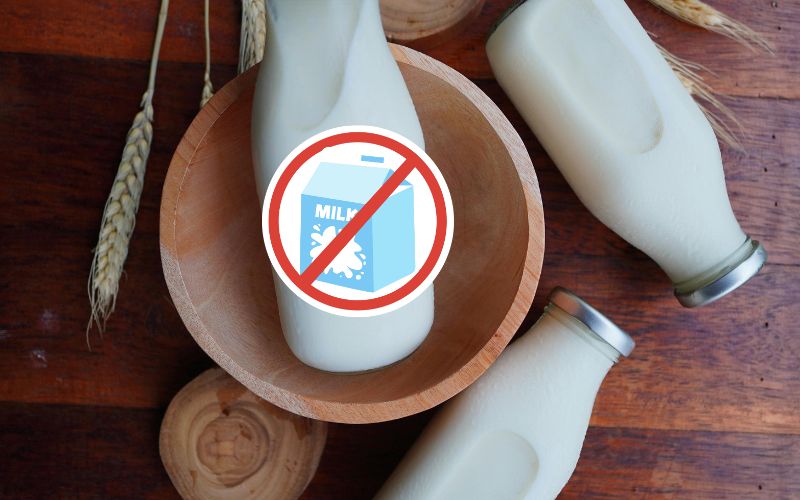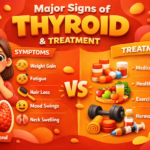Many people feel stomach discomfort after drinking milk. This common digestive issue is called Lactose intolerance. It is a worldwide problem affecting countless lives. A primary question people ask is always: Is Lactose intolerance treatment possible? The scientific answer is complex. We cannot cure the common genetic type yet. However we can manage it extremely well. Effective strategies allow you to live a symptom-free life. This condition is not a major disease. Think of it as a digestive limitation instead. You need expert advice to adjust your diet safely. A top Gastroenterology clinic in Delhi can provide this guidance.
Role of the Lactase Enzyme
Lactase is a critically important enzyme. It works quickly on the small intestine lining. Its primary job is to split one large lactose molecule. It changes lactose into two smaller, usable sugars. These are glucose and galactose. Your bloodstream absorbs these smaller sugars easily. This process provides energy and prevents stomach upset entirely.
When lactase levels are too low, lactose passes whole. It then creates many digestive problems. First, it pulls excess water into the intestine. This causes the feeling of fullness and bloating. Second, bacteria feast on the sugar in the colon. This action creates many gases like hydrogen and methane. These gases lead to pain, cramps, and flatulence. This entire chemical process explains the core of Lactose intolerance meaning in Hindi and other languages.
Symptoms of Lactose Intolerance in patients
The onset of Lactose intolerance symptoms is often predictable. They usually start between thirty minutes and two hours after consuming dairy. The severity depends entirely on two factors. It depends on the amount of lactose consumed. It also depends on your remaining lactase levels.
Common Physical Reactions
- Abdominal Bloating and Gas: This is the most common complaint. Your stomach feels uncomfortably swollen due to gas production.
- Stomach Pain and Cramps: You feel sharp, painful spasms in your lower belly area.
- Flatulence: Increased passing of gas is a very noticeable symptom.
- Diarrhea: The large amount of water pulled into the colon causes loose, watery stools.
- Nausea or Vomiting: Some people experience a sick feeling or an urge to vomit.
It is crucial to clarify one common mistake now. Lactose intolerance allergy is a misnomer. Lactose intolerance is a digestive inability. It involves no immune system response. A true milk allergy is a severe immune reaction. It can be life-threatening. Lactose intolerance is uncomfortable but entirely harmless. If you see blood in your stool, you must see a Gastro doctor in Gurgaon immediately. This could be a more serious issue.
Different Causes of Lactase Deficiency
Lactase production can stop or slow down for several different reasons. This results in various Lactose intolerance types.
1. Primary Lactase Deficiency (Genetic)
This is the most widespread form globally. It is an inherited trait passed down through families easily. Lactase production begins high in infancy. It then gradually and naturally decreases after childhood. This decline is a normal process for a majority of the world’s population. Symptoms usually begin appearing in late teenage years or adulthood.
2. Secondary Lactase Deficiency (Acquired)
This form is caused by an injury to the small intestine lining. Damage reduces the surface area where lactase is produced. Underlying conditions can cause this. These include Celiac disease, Crohn’s disease, or a severe bacterial infection. Treating the underlying disease often allows the intestine to heal. Healing usually restores lactase production over time. This offers the best chance for a potential cure.
3. Congenital Lactase Deficiency (Extremely Rare)
This form is present from birth itself. It is due to a very rare genetic defect. The baby cannot produce any lactase at all. This requires specialized, completely lactose-free formulas immediately.
4. Developmental Lactase Deficiency (Temporary)
This form affects only premature babies. The small intestine is not fully developed yet. It cannot produce enough lactase temporarily. This problem resolves by itself as the baby grows older. Even cases of Lactose intolerance infant may sometimes be temporary secondary cases.
How Doctors Check for Lactose Intolerance
If you suspect you have this issue, you must see a specialist. A qualified Gastroenterologist in Dwarka, gastroenterologist in Gurgaon or Delhi can perform the necessary tests. These tests are fast and non-invasive mostly. They confirm the diagnosis accurately.
The Hydrogen Breath Test
This is the most common Lactose intolerance check today. You drink a liquid containing a measured, high dose of lactose. If you lack the lactase enzyme, the lactose ferments in the colon. This fermentation produces hydrogen gas. Doctors measure the amount of hydrogen in your breath quickly. High levels confirm the intolerance quickly.
Lactose Tolerance Test
You drink a lactose solution. Blood samples are taken before and after. Doctors measure how much your blood glucose level rises. If the level does not rise much, it means the lactose was not digested.
Stool Acidity Test
This is mainly used for very young children or infants. Undigested lactose ferments. This makes the stool more acidic.
The accurate diagnosis rules out other similar gut conditions. It lets you focus on the right Lactose intolerance treatment.
Lactose Intolerance Treatment in Delhi & Gurgaon
Since we cannot change the inherited genetics yet, the treatment focuses on management. The goal of effective Lactose Intolerance Treatment is twofold. We must eliminate symptoms. We must maintain proper nutrition, especially calcium intake.
1. Strategic Dietary Management
This is the foundation of managing the condition effectively. You must consciously limit or avoid Lactose intolerance food items. Your personal tolerance level guides this avoidance.
- Milk and Cream: These contain the highest lactose levels. Switch to readily available lactose-free milk. Use alternatives like soy, almond or oat milk
- Hard Cheeses: Aged, hard cheeses like cheddar and Parmesan contain very little lactose
- Yogurt: The live, active bacterial cultures in yogurt help digest the lactose. Many individuals can easily eat plain yogurt
- Read Labels Carefully: Many packaged goods contain hidden lactose. Check for ingredients like “whey,” “milk solids,” “curds,” or “buttermilk.”
2. Lactase Enzyme Supplements
These are essential Lactose intolerance medicines for convenience. You can purchase lactase enzyme pills over the counter. You take these supplements just before eating dairy foods. The enzyme acts as the missing lactase in your gut. This allows you to digest the food normally. This is a very effective tool. It lets you enjoy a social meal containing dairy without fear
3. Addressing the Secondary Cause
If your intolerance is secondary, the focus shifts. Lactose intolerance treatment means treating the underlying disease. Healing the small intestine from Celiac disease or an infection often restores lactase production. This is the only scenario where the condition fully reverses itself.
The Importance of Nutritional Guidance
A major risk of self-treating is nutritional deficiency. People often avoid all dairy entirely. This can lead to very low calcium and vitamin D intake. Both are vital for strong bones
- Calcium Sources: Ensure you consume non-dairy sources. These include fortified orange juice, canned fish with bones, and dark, leafy green vegetables.
- Vitamin D: Get enough sun exposure. Eat fortified cereals and fish. Vitamin D helps your body absorb calcium efficiently
Your Gastroenterologist in Delhi NCR will often refer you to a specialized dietitian in Gurgaon. They help you create a safe, balanced meal plan. This plan ensures you avoid symptoms while keeping bones strong.
The treatment of Lactose intolerance is prolonged. It requires accurate diagnosis and the planning of diets. You should have a reliable Gastroenterologist in Delhi NCR who will lead you.
Doctor Hub is a major specialist centre for digestive health. Our expert,s including a top Gastroenterologist in Dwarka, offer specialised services. We use the best Lactose intolerance check techniques. We don’t just look at symptoms. We enlighten you about your state.
We come up with the individualised dietary program. Our team offer an all-inclusive system that guarantees effective Lactose Intolerance Treatment. Doctor’s Hub is the place to visit when it comes to managing your intestinal health.
FAQs
The enzyme supplements work very well for most people. They are highly effective. However, they are not perfect always. Their effectiveness depends on factors like the amount of dairy eaten and the enzyme pill’s dosage. It also depends on the specific brand’s strength.
Yes, many intolerant people can eat these fermented products. Yogurt and kefir contain beneficial bacteria cultures. These bacteria naturally break down some of the lactose for you. This makes the products easier to digest. They are often good dairy choices.
Lactose intolerance allergy is a confusing phrase. Intolerance is a digestive problem. It lacks an enzyme. An allergy is an immune system reaction to milk protein. An allergy can cause hives, swelling, or breathing problems. It is much more dangerous always.
You should be very cautious, yes. Look closely at the food label ingredients. If it lists milk, whey, curds, or milk solids, it contains lactose. Hard cheeses and butter have very little lactose. They might be safe for you.
This is called primary lactase non-persistence. It is the most common type. The gene for lactase simply switches off slowly after childhood. This natural, genetic process leads to symptoms only in adulthood.













